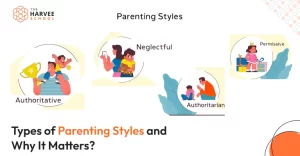Why Developing Leadership Skills Early Matters for Kids?
Leadership is a crucial skill that shapes a child’s future. While many associate leadership with adults in high-profile positions, the truth is that leadership development starts in childhood.
Teaching kids leadership skills early helps them build confidence, develop problem-solving abilities, and cultivate teamwork skills.
In this blog, we’ll explore why developing leadership skills early matters for kids and how parents and teachers can nurture these qualities effectively.
The Importance of Leadership Skills in Childhood
Leadership isn’t just about taking charge—it’s about responsibility, communication, and making informed decisions. Here’s why nurturing leadership skills in kids is essential:
1. Boosts Confidence and Self-Esteem
Children who develop leadership skills gain confidence in their abilities. They learn to express their thoughts, take initiative, and overcome challenges, making them more self-assured individuals.
2. Enhances Decision-Making Abilities
From choosing their extracurricular activities to solving school-related problems, kids with leadership skills develop strong decision-making abilities. This helps them assess situations, weigh options, and make sound choices.
3. Encourages Effective Communication
Effective leaders articulate their ideas with clarity. Teaching kids to articulate their thoughts and listen actively improves their ability to work with others and resolve conflicts effectively.
4. Teamwork and Collaboration
Leadership is not just about leading—it’s also about working as a team. Children who develop leadership skills learn to cooperate, delegate tasks, and appreciate different perspectives, making them valuable team players.
5. Promotes Problem-Solving Skills
A strong leader knows how to handle difficult situations. Kids with leadership training develop problem-solving skills that help them tackle academic challenges, peer conflicts, and other real-life situations.
6. Builds a Strong Foundation for Future Success
Leadership skills help children excel in school, extracurricular activities, and later in their careers. Kids who learn these skills early are better equipped to take on responsibilities and succeed in various aspects of life.
How to Develop Leadership Skills in Kids?
As a parent, teacher, or guardian, you can play a vital role in fostering leadership qualities in children. Here are some practical ways to encourage leadership skills in kids:
1. Encourage Independence
Allow children to make choices and take responsibility for their actions. Simple tasks like selecting their outfits, managing their schedules, or making small decisions help them build confidence in their abilities.
2. Provide Opportunities for Teamwork
Involve kids in group activities such as sports, school projects, and community service. These experiences teach them how to lead, cooperate, and respect different opinions.
3. Teach Effective Communication
Encourage kids to express themselves clearly and listen to others. Role-playing activities, storytelling, and public speaking exercises can help enhance their communication skills.
4. Let Them Solve Problems
Instead of immediately offering solutions, encourage kids to think critically and solve problems on their own. Guide them with questions that help them analyze situations and come up with possible solutions.
5. Set a Good Example
Children learn by observing. Demonstrate leadership qualities such as responsibility, respect, and teamwork in your daily actions. Show them how to lead with integrity and kindness.
6. Encourage Initiative and Responsibility
Give kids opportunities to take initiative. Let them plan family outings, lead a class project, or participate in decision-making at home. This helps them develop a sense of ownership and responsibility.
7. Recognize and Reward Leadership Efforts
Acknowledge when children display leadership qualities. Praise their efforts, provide constructive feedback, and encourage them to continue developing their skills.
The Long-Term Impact of Early Leadership Development
Teaching leadership skills early doesn’t just benefit kids in the present—it has long-term advantages that extend into adulthood. Children who develop leadership qualities tend to:
- Perform better academically
- Build strong interpersonal relationships
- Excel in future careers
- Become responsible and compassionate individuals
By instilling leadership skills in children from an early age, we prepare them for a future where they can make meaningful contributions to society.
Conclusion
Developing leadership skills early is a powerful way to shape a child’s future. It boosts confidence, enhances decision-making, and fosters problem-solving abilities. Parents, teachers, and mentors play a crucial role in nurturing these qualities through guidance and encouragement. By teaching kids to lead, we empower them to become confident, responsible, and capable individuals who can make a difference in the world.






